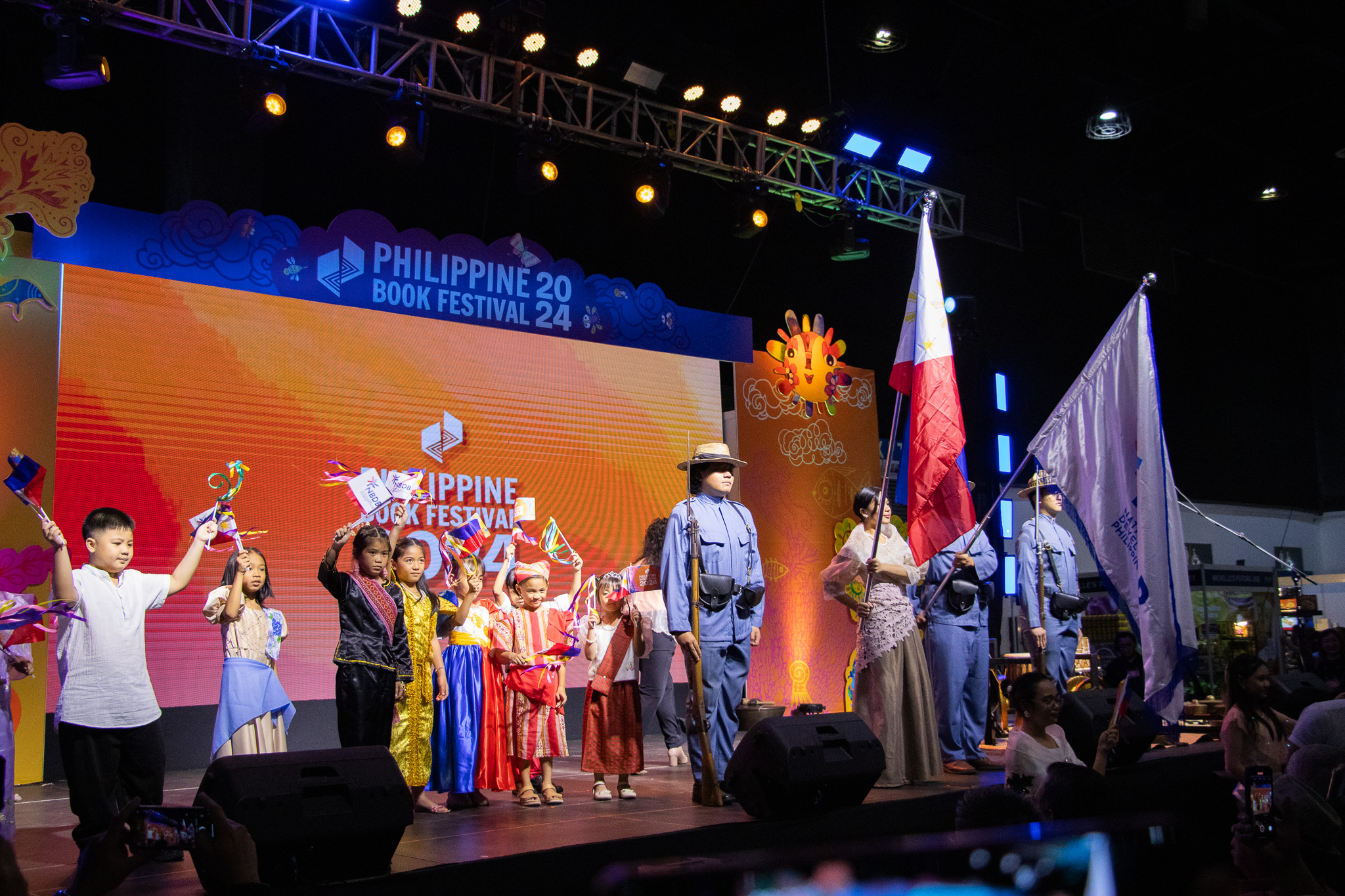The Philippine Book Festival’s (PBF) “Simula: A Celebratory Ritual,” where the festival’s advocacies were given a voice, promised a bright future for the interweaving of Filipino arts, literature, and education. The four-day fair symbolized the PBF’s continuous commitment to nurturing creativity and knowledge within the Filipino community.
While other book fairs place discounts and bundle deals on center stage, PBF fostered a greater cause in its core: shining a new light on the “Philippine Book,” as Mr. Dante Ang II, the Chairperson of the National Book Development Board (NBDB), had put it in his opening message.
Mr. Ang shared PBF’s hopes of changing the way Filipinos perceive books and reading through integrating interactive booths and performances in the fair, hoping to “attach joy to books, to highlight the names behind them, and give them recognition they have long deserved.”
With this, he acknowledged the brevity of the event compared to what it aims to achieve: revamping the Filipino reading culture, democratizing distribution, and improving response towards issues of accessibility. Nonetheless, he views the PBF as “a conscious first step” towards the betterment of the local book publishing industry and the national readership. Also tackling the necessary growth of the education sector, he emphasized the importance of nurturing a space to “make reading possible for all sectors of the population.”
Moreover, the significance of books in shaping education was also brought forth by Senator Loren Legarda, Senate President Pro Tempore and Chairperson of the National Commission for Culture and the Art (NCCA)’s Committee on Culture and the Arts. She regarded the festival as an avenue for the integration of localized content in public school education. Encouraging authors and publishers to innovate textbook writing, she pointed to the possibility of unifying arts and culture into teaching Filipino, English, Science, and Mathematics subjects as a way to deepen the new generation’s appreciation for their heritage and national identity.
“Why not use texts from our history as we drill students on subject-verb agreement? We could use our heirloom ingredients like Batuan or Langkawas as we instruct our students on how to count, add, and subtract. When we teach comprehension activities, [in] identifying the main idea and the supporting details, we can use stanzas from our epics,” she emphasized.
While Sen. Legarda urged the Department of Education (DepEd) to prioritize the procurement of Filipino-penned books in public school libraries, DepEd Undersecretary, Ms. Gina O. Gonong, admitted the challenges faced by the department in the past regarding acquiring learning resources for school libraries. Nonetheless, with the new department order on the Guidelines on the Provision of Supplementary Learning Resources, Ms. Gonong detailed how the department now prepares for a large-scale purchase of quality books for library hubs all over the country.
She also highlighted the continual relationship of the department with local private publishers, “[The PBF] serves as the site for these procurements, and is a venue where educators and publishers can have conversations [which are] extremely valuable to Philippine education.” As DepEd moves toward their goal of book procurement, Ms. Gonong joyfully announced the inclusion of comic books in the selection.
In the topic of the recognition of comics in the literary scene, Komiket Co-founder, Mr. Paolo Herras expressed the lack of accessible platforms for comic artists to promote their work in the past decade. He chronicled the efforts of their organization to keep the industry alive through various workshops, establishing their own bookstore, and independently publishing their own creators. Currently, Mr. Herras takes pride in the numerous awards won by Filipino comic creators in notable competitions both in the country and abroad.
As he brought remarkable change to the comic community by believing in its creators, he points to the belief of other Filipinos as the catalyst to improving the local literary industry. “Imagine if more people believed, supported, and celebrated Filipinos books [...] Now is the time for us to believe, in order to see and co-create a better future for the Philippine publishing industry.”
In the end, Ms. Charisse Tugade, the Executive Director of the NBDB, described her experience in coming across titles that are “not written from our own voice” as part of her work with DepEd and the NBDB in creating a policy towards book procurement. “Because we have 7,641 islands, we need books that represent the diverse cultures that we have, and the languages that we speak.” Similarly, she also touched upon the inevitable decline of Filipino readership due to modernization and the change adults can do to break this trend, especially for the sake of the next generations.
Furthermore, PBF’s “Simula: A Celebratory Ritual” was completed by a traditional Tagayan, where all attendees were invited to share a toast in spirit of the celebration, led by Ms. Tugade and TBAA Quezon.
Through the commencement of the PBF, the Philippines’ participation as a guest of honor in the 2025 Frankfurten Buchmesse, the largest book fair in the world, was announced by the guest speakers.
The event featured a diverse array of cultural performances. Members of the Philippine Cultural Education Program, under the NCCA, presented a witty and modern-tinged round of Balagtasan, accompanied by poetry readings and cultural rituals performed by Al-Raffy and Dats-Atal, both from the Samu-Bajau ethnic group. Additionally, the AlunAlun Dance Circle contributed to the program. Notably, all these interpretative numbers shared similar themes centered around Filipino spiritual beliefs and a deep connection with nature.
Although “Simula: A Celebratory Ritual” was exclusively held for guests attending the festival’s first day, those who visited in the following days found themselves immersed in the different activities the Philippine Book Festival had in store for.
In the fulfillment of its purpose, Filipino readers can find a deeper love and appreciation for reading, more so in upholding their roots, through a simple stroll along the four sections of the book fair (Booktopia, Aral Aklat, Komiks, and Kids Lit).


